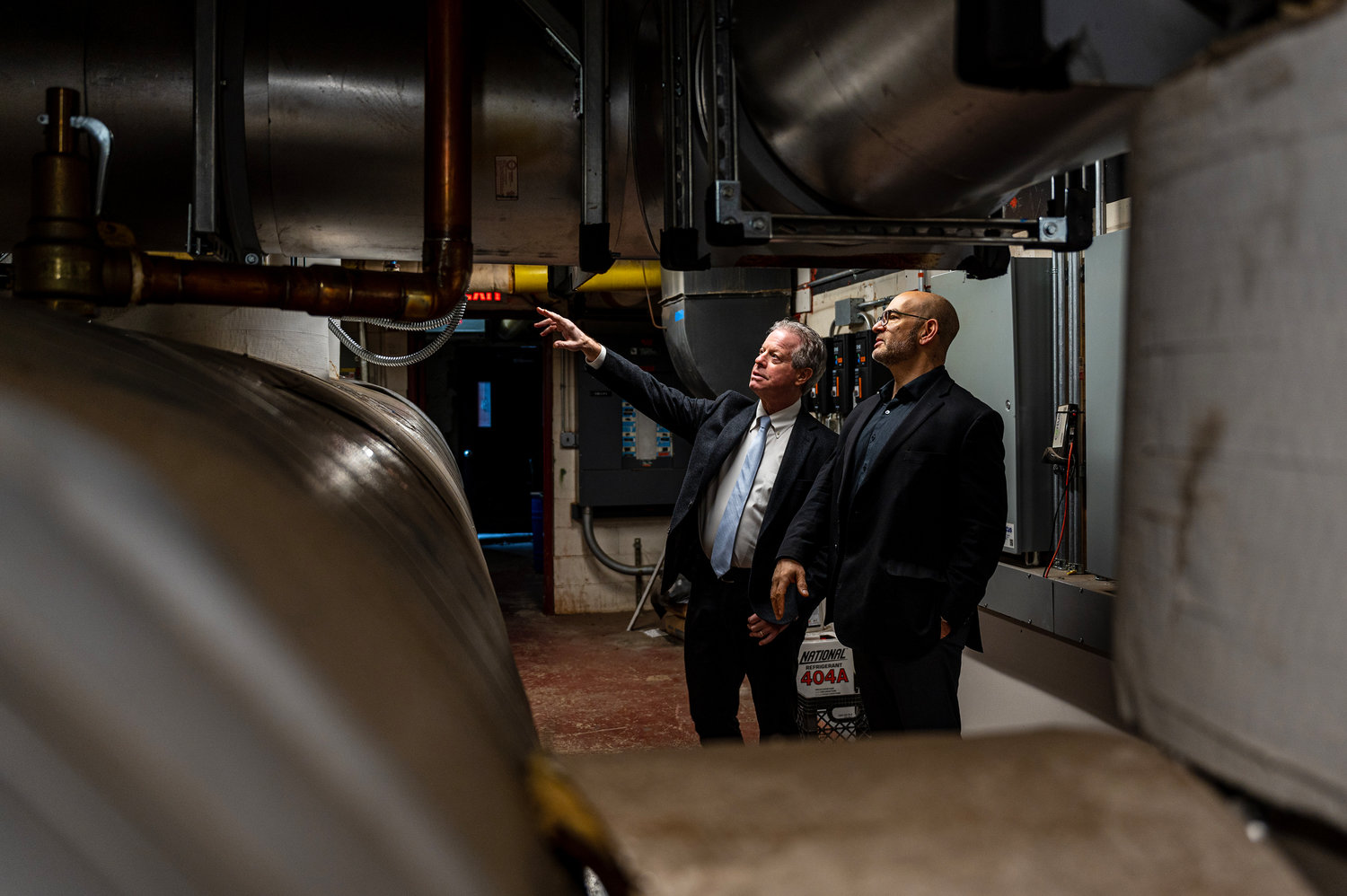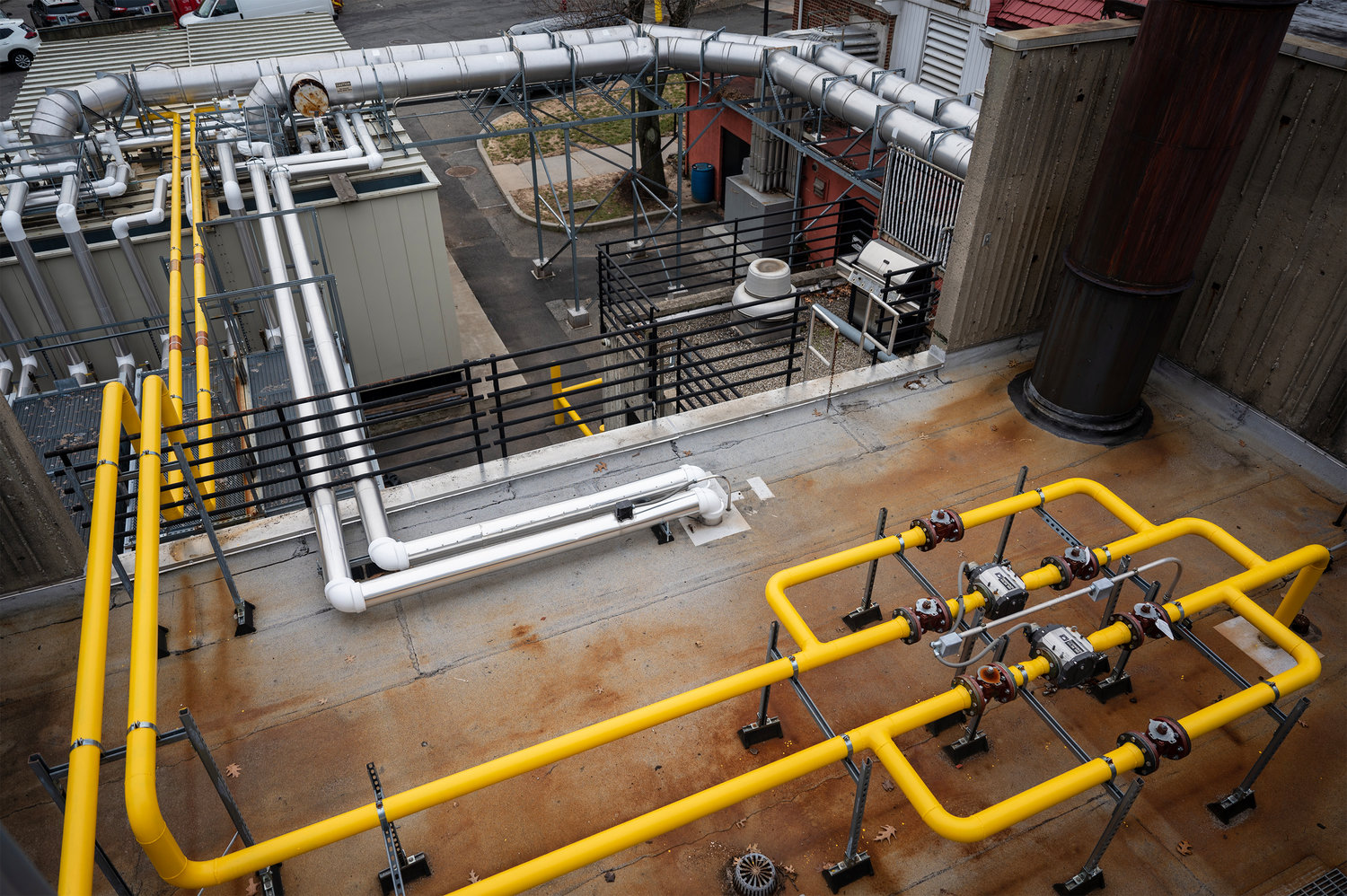Hebrew Home campus co-generates
RiverSpring Living among first long-term facilities to create energy with this system
The amount of electricity used in the Hebrew Home of Riverdale is extensive. Health monitors, refrigeration and heating to cooling — even turning on a reading lamp — use up lots of energy.
Serving as the Hebrew Home parent organization, RiverSpring Living’s campus has several buildings that go back 120 years. Over time it has operated on electricity and gas separately causing damage to the environment.
While inspecting the mechanical systems around 2015, Daniel Reingold, chief executive and president of RiverSpring Living of Riverdale, said its mechanical systems were outdated.
“Some of the systems were antiquated and needed to be completely rebuilt. And even so they were going to be kind of inefficient,” Reingold said.
He expressed RiverSpring Living's sole mission is not just to take care of older adults but also the surrounding environment. He aims to be a good steward for the Riverdale community. He admitted his strong personal feelings about being a part of an environment-led community.
Parts of the northwest Bronx are designated as a special natural area district. In 1975 through a zoning resolution, the campus became a part of a plan to protect natural areas to guide development to safeguard trees, planting, outcrops and steep slopes.
“Power generation is incredibly inefficient because the energy you need to generate the 40 percent of actual power is based on 60 percent of energy lost to the environment,” said John Lembo, vice president of facilities management at RiverSpring Living,
When an engine that operates a heating and cooling system runs, it loses about 60 percent of the energy that goes up and out of its chimney.
Cogeneration, or combined heat and power, is the use of a heat engine or power station to generate electricity and useful heat at the same time.
“Anytime anybody does anything in Riverdale that has an environmental impact, the community comes together to be sure that the community environment is protected, as they should. And again, we are part of the community,” Reingold said.
The senior community started operating an independent energy plant in 2020 that captured the electricity and heat used on campus. That is called a cogeneration system, or Cogen.
The plant has two Cogen systems and operates off natural gas-fired engines and two heat recovery steam generators. RiverSpring Living became the first official long-term care facility in the United States to have its own Cogen plant.
New York University is another institution that built a state-of-the-art plant in 2007 to provide heat and electricity to 37 buildings. Yonkers has a wastewater treatment plant that operates on a similar system. It became the largest plant in New York.
“They (Yonkers) have a system (where) they actually use the digester gas, which is the methane from the wastewater treatment plant, as a fuel to feed the fuel for their plan to generate the power,” Lembo said.
The Hebrew Home can produce massive amounts of hot water and air conditioning through absorption cooling. In the summer, they use the waste heat for free cooling, which offsets heat.
Reingold had conversations with the New York State Energy Research and Development Authority when he decided to have RiverSpring Living go green. The authority requested ideas on how they could support a new clean energy initiative.
Once the plan was in place, Reingold negotiated a $2.5 million grant from the authority. The rest of the funds for the project, around $14 million, came from a 10-year loan.
Since the grant was predicated on the operation and efficiency of its system. Through the negotiation, the organization tracked the plant to ensure it was following efficiency. If they hit the threshold, the grant would be paid in full. Which it was.
Since it depends on natural gas, they negotiate a long-term deal to generate the plant. On average, Reingold forecasts they will save $1.2 million a year.
“If you break that down (10-year loan), the cost of the amount of money that we’re borrowing is roughly similar to the amount of money that we’re about to save,” Reingold said.
Once that 10-year deal is up, they can cap those savings.
It would be tough to operate new Cogen plants and their financing since the state energy research and development authority does not offer the program anymore and there is a natural gas shortage. According to the U.S. Energy Information Administration, an agency that tracks gas data found, wholesale gas last year was the highest it has been since 2008.
The Russian invasion of Ukraine and its impacts crushed natural gas availability. According to a White House fact sheet, the U.S. banned imports of Russian oil and liquefied natural gas a month after the invasion.
“We were in this sweet spot where we had the program, grant, financing, and the availability of natural gas and a place to put the Cogen plant,” Reingold said.










